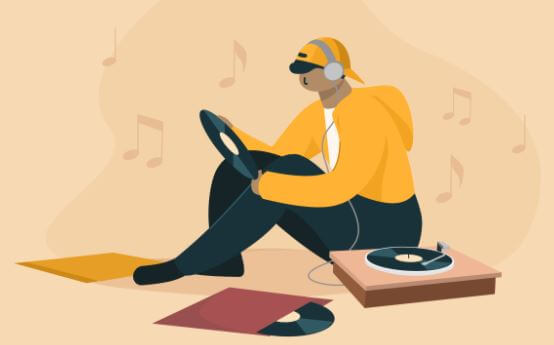
The roots of hip-hop lyricism delve into the expressive traditions of spoken word, poetry, and storytelling. Originating in the late 1970s, artists like Grandmaster Flash and The Sugarhill Gang laid the groundwork for hip-hop’s verbal narrative. These early pioneers transformed street anecdotes into rhythmic verses, setting the stage for a lyrical revolution.
As the genre matured, Rakim and Big Daddy Kane emerged as influential figures during the Golden Era. This era witnessed a surge in lyrical complexity, with artists adopting intricate rhyme schemes and sophisticated wordplay. The marriage of storytelling and social commentary became a hallmark, elevating hip-hop beyond entertainment.
Learning Songwriting And Connecting With Collaborators
Crafting meaningful lyrics is an art form in itself. Aspiring artists navigate the terrain of songwriting, honing their ability to weave words into a tapestry of emotion and meaning. Learning the craft involves understanding the power of narrative and word choice, as lyrics serve as a vessel for personal expression and connection with audiences.
Equally vital is the role of collaboration in hip-hop. The genre thrives on the synergy between artists with diverse perspectives. Connecting with collaborators fosters an environment where lyrical innovation can flourish. Collaborative efforts introduce fresh perspectives, pushing the boundaries of what words can convey within the genre.
Evolution Of Lyrical Complexity
The golden era of hip-hop, spanning the late 1980s to the early 1990s, witnessed a zenith in lyrical complexity. Artists embraced intricate rhyme patterns and layered metaphors, elevating hip-hop to new heights. Social commentary became woven into the fabric of verses, addressing issues ranging from inner-city struggles to political unrest.
In the contemporary landscape, lyricism has evolved further. The 21st century has seen a diversification of themes and subject matter. Artists such as Kendrick Lamar and J. Cole infuse their lyrics with introspection, tackling complex issues like race, mental health, and societal inequities. This evolution reflects the genre’s adaptability and ability to remain a potent voice in the ever-changing musical landscape.
The Role Of Words In Hip-Hop Today
Hip-hop’s influence extends far beyond its Bronx origins, reaching every corner of the globe. The power of words in the genre resonates globally, transcending linguistic and cultural barriers. International artists contribute to the diversity of hip-hop, infusing their unique linguistic styles into the genre’s rich tapestry.
Contemporary lyricists continue to innovate, pushing the boundaries of what is possible within hip-hop’s verbal realm. The advent of technology has played a pivotal role, providing artists with new tools for lyrical expression. Digital platforms serve as a stage for disseminating lyrics, allowing artists to connect with a global audience.
Looking Ahead
The art of lyricism remains at the forefront of hip-hop’s evolution. From its humble beginnings in the streets of the Bronx to its current global influence, the genre’s verbal landscape continues to expand and redefine itself. Learning the craft of songwriting and fostering collaborative connections are essential components in the journey of a hip-hop artist.
As we look ahead, the power of words in hip-hop shows no signs of waning. It is a force that shapes the genre and reflects and influences the broader cultural landscape.
